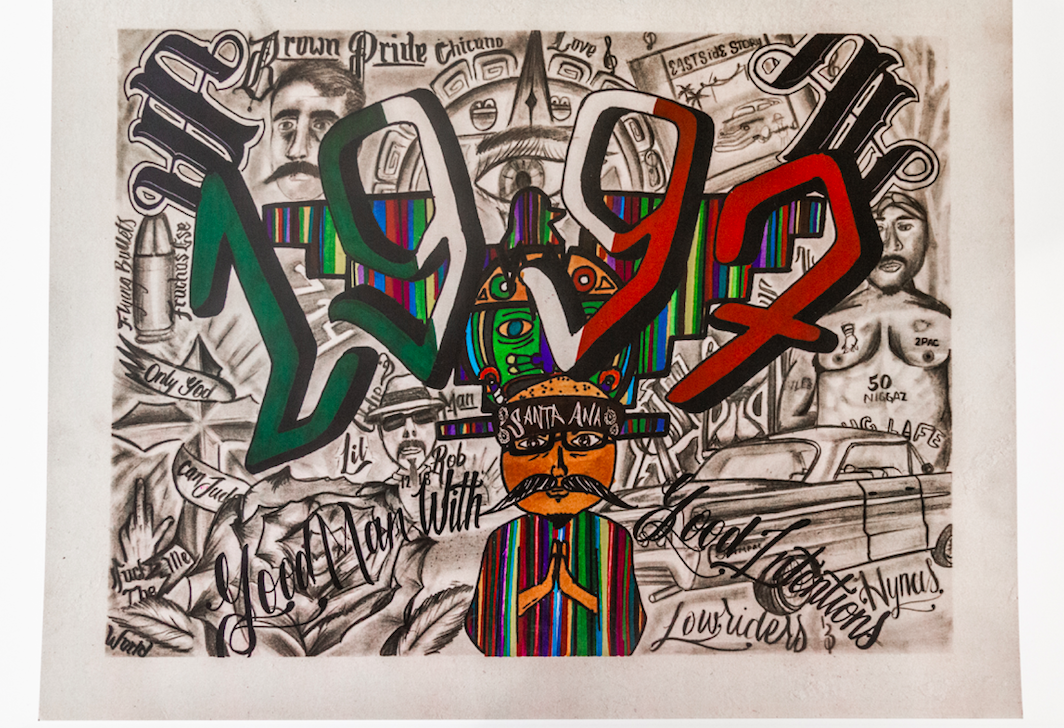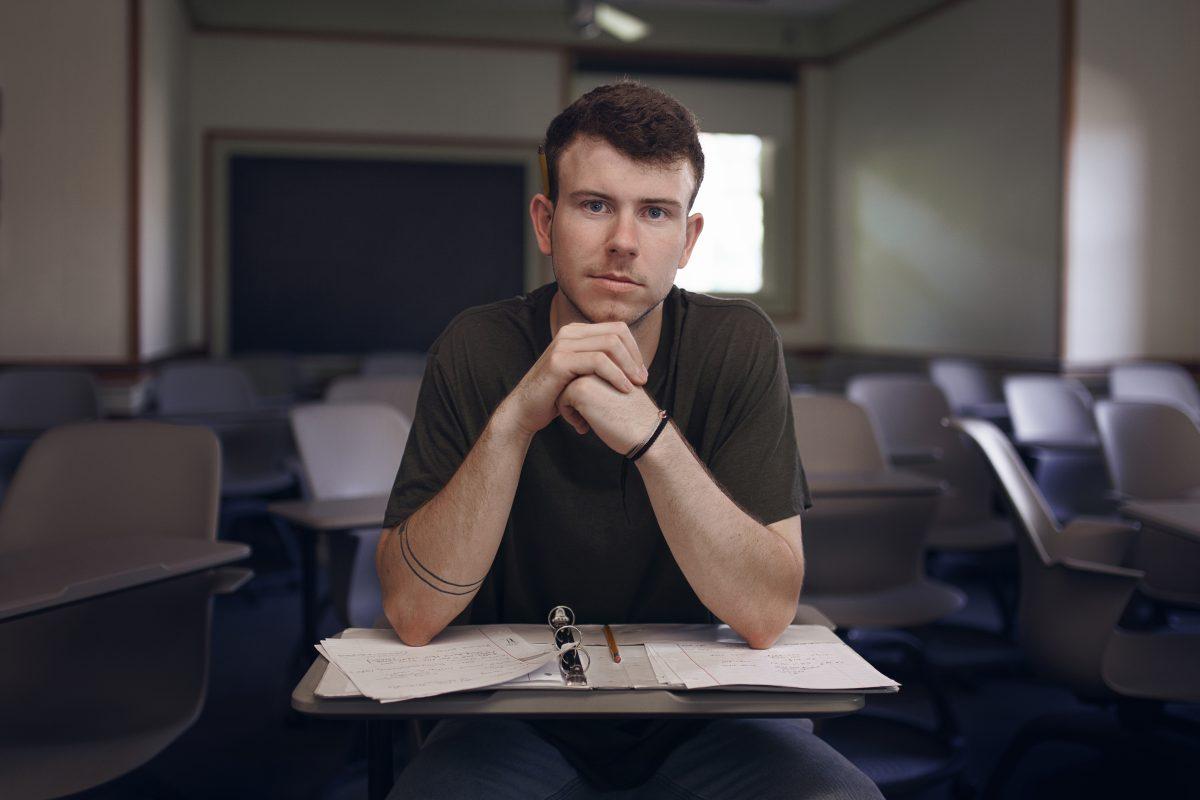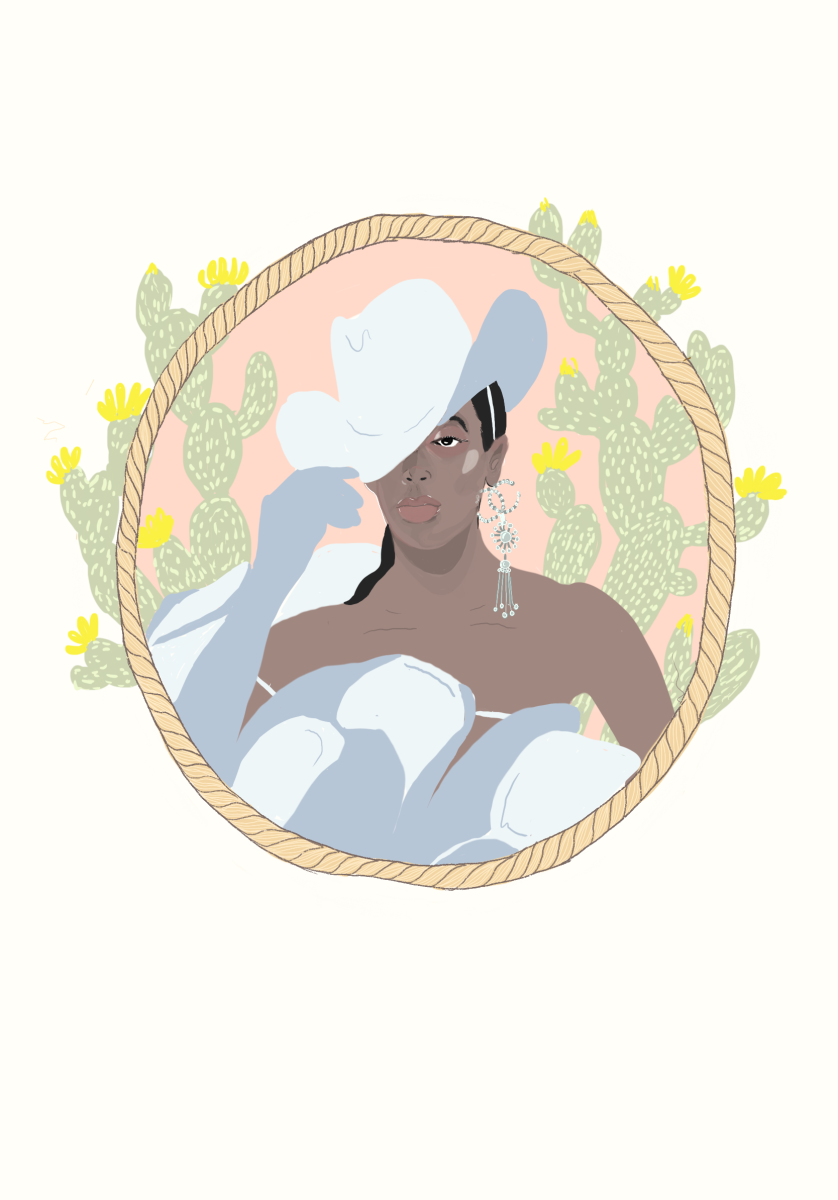Lahela Daniels grew up idolizing the Alpha Kappa Alphas in her life. From notorious Black figures like Mae Jemison to the upperclassmen at her North Carolina high school, Daniels knew that wherever she attended college, she wanted to join the National Panhellenic Council (NPHC), also known as the Divine Nine.
The NPHC is made up of nine historically Black sororities and fraternities across the nation, each with rich histories and traditions. Founded in 1930 on the campus of Howard University in response to an increasingly segregated Greek community and a desire to serve and uplift the Black community, the NPHC has blossomed into an international organization with over 300,000 members.
When Daniels arrived at the University of Oregon, she was pleased to see a small, though mighty, NPHC community. This often misunderstood and unsung community has persisted in a Greek system with very little racial diversity for almost 75 years. Today, this progress embodies the resilience and the meaning of multicultural Geek life for the members that fight for its recognition.
The two NPHC chapters at UO, Delta Sigma Theta Inc. and Alpha Kappa Alpha Inc., have worked to establish necessary communities of support on a campus and in a state that have historically marginalized minority populations. Although the office of Fraternity and Sorority Life has demonstrated an increased dedication to the chapters’ growth in the last two years, the NPHC members at UO continue to face challenges in one of the whitest states in the United States.
NPHC organizations at UO face a troubling racial landscape as well as a history of racism and racial violence. Only 2.3 percent of the university’s 22,760 students are black or African American, according to the UO Office of Institutional Research. This percentage has increased over the last ten years, rising just above the state’s 1.9 percent black or African American population.
While UO is actively working to address the university’s historical mistreatment of people of color, the UO FSL department does not keep statistics of the racial diversity of the Greek community, according to Caitlin Roberts, the director of FSL. According to Roberts, while the university as a whole has shown a steady increase in racial diversity, the same increase is not evident in the Greek community, but she hopes that the growth of multicultural organizations like NPHC will address this racial exclusion.
“I’d love to see our population of students become more diverse, and I think the more we grow the opportunities for these students to be connected, the more inclusive our community will be,” Roberts said.
Indeed, Alpha Kappa Alpha Inc. and Delta Sigma Theta Inc. are significantly smaller than the other Greek organizations on campus.
“There are not very many members, just because of the area we are in,” said Daniels. When she joined last year, there were only six other AKA members on campus.
Similarly, Gabby Allen, the president of the Delta Sigma Theta Beta Psi chapter, is now the sole member at UO. Like Daniels, Allen joined Delta Sigma Theta because of the shared set of values she aligned with.
“I found that a lot of the women I grew up with were a part of this organization and I looked at them as influential women in my life,” Allen said. “When I came to UO, I saw these other organizations, but I didn’t see anybody that necessarily reflected my beliefs or even looked like me. So it was more about finding a group that I could connect with on a personal level.”
When Allen joined her house in 2017, there were 12 members. Now, as the only Delta at UO, Allen also faces the challenge of locating and recruiting members.
But what they lack in size, NPHC chapters make up in their impact on the community.
According to Marcus Langford, the associate dean in the Office of the Dean of Students at UO, NPHC chapters’ dedication to the community is unparalleled. “There really is a drive to focus on the specific communities they were founded to support and engage,” said Langford, citing his own fraternity, Alpha Phi Alpha Inc., which was the first historical African American fraternity founded as a direct result of exclusion from white fraternities. “As these organizations developed, they then extended their work, time, energy and effort into the African American community.”
This dedication is encompassed in Delta Sigma Theta’s political and social action. Last year, Allen joined her sisters in the Red Army — a self-designated name based on Delta’s signature color — at Delta Days in Washington D.C., when members lobby for legislative action for the Black community at UO and in Oregon.
While the community service NPHC organizations engage with now extends beyond the black community, this initial commitment and set of values still drives their service, and their values as NPHC and community members.
“They are really more focused on giving back to the community. With our NPHC groups, they are out there, doing work in the community, giving their time and actually doing service,” Roberts said.
Indeed, the presence and proliferation of NPHC at UO is essential for a community that is not sufficiently represented in Oregon.
“It’s important that we have organizations and mechanisms that were created with the interest and success of folks of color and folks from marginalized and underrepresented populations, in mind,” Langford said.
That said, it can be difficult for NPHC chapters to feel their voices heard. Functioning within FSL and under the guidance of Roberts — who is white — presented an all-too-familiar trend of multicultural representation at UO for Daniels.
“I had a white woman my freshman year teach me African American history, so that’s kind of like what it is like to be under FSL,” Daniels said.
NPHC organizations face a similar lack of recognition in the Greek community as a whole. According to Daniels, another sorority at UO uses the same hand signal as Alpha Kappa Alpha Inc. These signals (AKA’s is made by placing one hand on top of the other with each thumb out) are unique to each house, intimately incorporated into ritual and sisterhood and serve as universal, nonverbal indicators of unity.
“Just because there are so little of us, it’s not going to hurt to learn about us,” Daniels said. “For me, I don’t really care that they don’t know but at the same time, I am tired of the looks. We put in the effort to do that research on them, so it feels like they should do the same for us.”
For Allen, this lack of awareness has had detrimental effects on the ability of greek life as whole to enact change.
“I think a lack of knowledge has stopped the networks from connecting, but it’s slowly starting to get there,” Allen said.
Indeed, FSL has made significant strides in the last year in better supporting the NPHC organizations on campus, including them in annual retreats and events. Working with the FSL administration directly, Allen is optimistic about the future of NPHC organizations at UO.
“I think that FSL is doing a great job of trying to mend and make those relationships. They’ve been including us in everything and they want to grow our chapters just as much as we do,” Allen said.
On an administrative level, Langford notes a noticeable change in the ways in which FSL and the university are working to acknowledge and uplift multicultural Greek life.
“We are really thinking in terms of how can we best support and engage these organizations and part of that may be that we have to think about how we historically have supported fraternities and sororities, as it relates to NPHC organizations,” Langford said. “We just have to think about doing that in a different way.”
NPHC chapters have been at UO since 1945, confronting a racial landscape that has mistreated people of color for centuries. While their numbers are small, their role in the state of Oregon as a whole is unparalleled.
“It is what it is. Oregon is not very diverse,” Langford said. “So having these organizations provides a place and a space for those students to celebrate their identity and be a part of something that was created specifically and particularly for them.”
And perhaps more notably is the role the chapters play for their members.
“Being an AKA means that I am a part of something that is bigger than me,” Daniels said. “I am here for the same reason our founders were 111 years ago and I love that my sisters are too.”
Adji Ostin, Jyreh Johnson, Paris Jenkins, Cystal-Candice Quaye, and Tiaja Andrews are the newest members of Alpha Kappa Alpha. (Photo by Emery Thanathiti)











![[Photo Courtesy of the Lara Family]
Ruben embraces his beloved childhood goat, Katrina.](https://ethos.dailyemerald.com/wp-content/uploads/2025/05/katrina-1-1060x1200.jpg)


